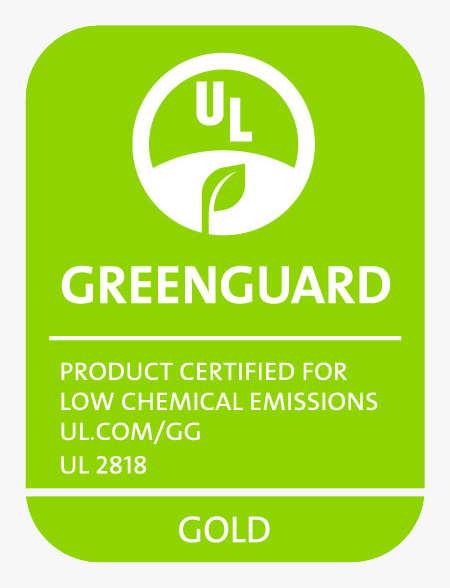Our Planet
UPPAbaby Sustainability
Carrying Change Forward.
As a leading company in the juvenile industry for over 15 years, UPPAbaby is continuously striving to learn, adapt, and improve each year. We aspire to not only develop our products, but also our entire brand and core values. We understand and acknowledge the importance of sustainability and are working through numerous initiatives to create and maintain a responsible workplace and product line for our families and yours. When it comes to sustainability, we get more done when we work as a team. Let’s keep moving forward, together.
We know that the growth of our company depends on the economic, environmental, and social sustainability of our communities across the world. We also understand that it is our responsibility to contribute to the sustainability of those communities.
— Bob Monahan, CEO, UPPAbaby
What steps are we taking to make change?
-
Reducing Our Carbon Footprint Through Manufacturing + Textiles
From the very first step in the process of manufacturing our products, UPPAbaby is committed to sourcing materials that exhibit superior performance properties while eliminating the need for chemical treatment. All UPPAbaby car seats contain no added flame-retardant chemicals applied to materials that are in direct contact with a child. We do this using fabric mills which we have invested in state-of-the-art technologies to limit the use of water and chemicals in the treatment of our fabrics. At both our leather and foam plants, we have invested in dedicated machinery to ensure no cross-contamination of chemicals can occur. Our Mesa V2 and Mesa Max infant car seats, and our Remi playard are GREENGUARD GOLD Certified – providing the validation of low chemical emissions into the environment. The UL GREENGUARD Certification Program states, “The GREENGUARD Gold Certification standard includes health-based criteria for additional chemicals and also requires lower total VOC emissions levels to help ensure that products are acceptable for use in environments like schools and healthcare facilities.” All our leathers are chrome-free and come from LWG Gold-certified facilities. To ensure proper standards are in order, UPPAbaby audits its suppliers using ISO 9001 standards to maintain a responsible supplier base. The goal is to continually improve environmental stewardship and reduce our carbon footprint. Our premium, full-grain leather accents are all REACH certified. Being REACH certified means our leather tanning process is cognizant of the effects of chemicals and our tanneries regularly pass rigorous chemical compliance testing.

-
Social Responsibility Through Our Packaging Efforts + Processes
The next step in the process to become more socially responsible as a company is looking at our packaging efforts. UPPAbaby packaging uses FSC-certified cardboard paper, which ensures that the packaging “comes from responsibly managed forests that provide environmental, social, and economic benefits.” Our products are developed with the goal of limiting packaging and plastic waste using recyclable packaging materials. In addition to the packaging itself, all printed materials and boxes use soy-based inks, which are less harmful to the environment vs. petroleum-based counterparts.
-
Donating Energy Through Our Corporate Headquarters Electricity Efforts + Solar Panels
Here at our Headquarters located in Rockland, MA, United States, UPPAbaby powers its facility using renewable solar energy. Our solar panel system is a Parallel Co-Generation system with a max output of 197kw or 197,000 watts. We generate roughly half of our needed electricity and donate the remaining energy back to the town. The solar energy from the panels passes through five inverters, is converted into AC power, and sent into our system through a meter which keeps track of what was produced. In return, we receive SREC’s (Solar Renewable Energy Credits). The energy from our solar panel system equates to environmental benefits including, equivalent trees planted, and CO2 emission saved. Since 2018, UPPAbaby has saved more than 1.3M lbs of saved CO2 emissions and over 10.3 K trees planted. For those headed into our headquarters, we have a Charge Point EV dual Electric Vehicle charging station that can handle two vehicles simultaneously. Our recycling program here at our headquarters is monitored closely by both our Food Service Coordinator as well as our outsourced janitorial service.
‘Since 2018, UPPAbaby has saved more than 1.3M lbs of saved CO2 emissions and over 10.3 K trees planted.’
-
Product Longevity + Charitable Initiatives
Our Tune-Up Gear-Up program provides complimentary pushchair and car seat maintenance service, shares tips and tricks to keep you traveling safely, and recommends gear to suit your family’s needs and lifestyle. This program, in addition to the UPPAbaby extended warranty service keeps products active for longer and keeps products out of landfills. Our UPPAbaby Gives Back Initiative also provides safe transport to babies and children in need. Through this initiative, we have donated more than 3M worth of gear through our charitable partners. Donating each year ensures all excess inventory goes to children in need and not to waste.
-
Advocacy Through Committees + Organizations
UPPAbaby participates in committees and organizations that drive legislation for a sustainable and healthy environment. Currently, our committee memberships are with Green Chemistry & Commerce Council (GC3), American Society for Testing and Materials (ASTM International, American Association of Textile Chemists and Colorists (AATCC), Center for Child Injury Prevention Studies (CChIPS), and Juvenile Products Manufacturers Association (JPMA). Beyond UPPAbaby as a company participating in the above committees and organizations, a UPPAbaby employees are individual members of the following: American Society of Quality (ASQ), American Society of Mechanical Engineers (ASME), Human Factors and Ergonomics Society (HFES), and Project Management Institute (PMI).
‘By eliminating the use of plastic polybags on our top-performing Vista V2 pushchair, we have produced 150,000 fewer plastic bags annually.’

 EN-GB
EN-GB